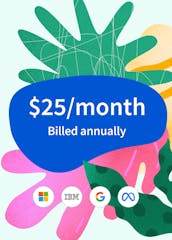Questions to Ask at the End of an Interview
Consider asking these six questions to your interviewer or potential employer at the end of an interview.
![[Featured Image] Two women are talking to each other.](https://d3njjcbhbojbot.cloudfront.net/api/utilities/v1/imageproxy/https://images.ctfassets.net/wp1lcwdav1p1/3axX23iYTIVDK7tIG3cKnL/cdceb3d2f3fa7e99e09beb592000f307/8qD3k2Vw.jpeg?w=1500&h=680&q=60&fit=fill&f=faces&fm=jpg&fl=progressive&auto=format%2Ccompress&dpr=1&w=1000)
At the end of an interview, your interviewer will likely offer you a chance to ask final questions. This is a great opportunity to clarify your understanding of the role and the company and become familiar with the next steps of the recruitment process.
If you’ve prepared questions in advance about the position you’re applying for, company culture, and employee experience, ask those throughout the interview as the conversation develops. See 30 Career-Focused Questions to Ask in an Interview for inspiration.
Then, at the end, ask a few more concluding questions, with the goals of feeling confident about your performance, making an empowered career decision, and demonstrating your interest in the company.
- Get access to 10,000+ learning programs from world-class universities and companies, including Google, Yale, Salesforce, and more
- Try different courses and find your best fit at no additional cost
- Earn certificates for learning programs you complete
- A subscription price of $59/month, cancel anytime
hat are good questions to ask in an interview?
Reflect on these questions before your interview so that they become familiar to you. That way, you can smoothly transition from the main part of the interview to its conclusion while gathering valuable information.
1. From what we’ve discussed, what would inspire you to hire me?
This question can set a positive tone for the final moments of the interview and encourage your interviewer to imagine what it would be like to have you on the team.
Listen carefully to the interviewer’s answer. How well do they understand you as a candidate? Time permitting, is there anything in your interviewer’s answer that you can address on the spot? After the interview, how might you write a follow-up email that refers to details in the interviewer’s answers to this question?
What to ask in an interview: Try these phrasing alternatives
*Which of my qualifications best suit me for this position?
*Based on what we’ve discussed, what do you see as my main contribution to this company?

2. Based on what we’ve discussed, how do I compare to the ideal candidate or others applying for this position?
By asking this question, you can communicate to the interviewer that you’re interested in rising to the challenges and requirements of this position. Asking this question can also show the interviewer that you are mindful of the hiring process, which typically involves considering multiple candidates, and that you would like to rank at the top.
Listen carefully to the interviewer’s answer for opportunities to address the following:
How are they evaluating your suitability for the position?
What follow-up questions can you ask regarding additional skills training that may be available to employees?
How can you express your commitment to performing well in the position?
What ideas can you share about contributing to the company’s mission?
3. What is the most rewarding aspect of working for this company?
By asking this question, you can demonstrate that career satisfaction is a priority for you.
Alternatives or follow-ups to this question include:
What are the main rewards and challenges I can expect in this role?
What has been your proudest moment while working here?
How would you describe this company’s culture?
In what ways will working for this company help me make a positive impact on the world?
What’s the typical career path for someone in this role?
4. What information can I offer that would clear up any hesitations?
Asking this question can achieve several things. First, it puts the onus on the interviewer to disclose any negative aspects of their evaluation of you. Second, it shows that you are willing to receive uncomfortable information about where you stand, learn from that information, and take action to qualify yourself for a position.
Listen carefully to the interviewer’s answer. What additional details about your employment history, prior experience, and current capabilities can you share? What examples of prior work could you provide? What job-related assignment could you complete and submit to show your potential?
5. Is there anyone else I should meet before you make your decision?
Asking this question shows your interest in the company and the team you’d be working with, as well as your willingness to consider multiple touchpoints as you make your career decision.
It can also give current employees the chance to share their impression of you with the interviewer and other decision-makers.
6. What are the next steps in the recruitment process?
This is a great question for learning what you can expect in the days or weeks to come so that you walk away from the interview with some peace of mind.
For example, you might discover that there are additional rounds of interviewing, from a panel interview with multiple decision-makers to a case interview in which you’d propose solutions to hypothetical business challenges.
Be sure to find out when the best day to ask about updates is. By inquiring about this, you can communicate that you are eager about the position and willing to consider the interviewer’s schedule.
- Get access to 10,000+ learning programs from world-class universities and companies, including Google, Yale, Salesforce, and more
- Try different courses and find your best fit at no additional cost
- Earn certificates for learning programs you complete
- A subscription price of $59/month, cancel anytime
How many questions should you ask in an interview?
You should ask your interviewer around two to three questions after your interview. This will show your interviewer you are interested and engaged in the job and that you’ve done your research, and you want your questions to require more than a simple “yes” or “no” answer.


specialization
Good with Words: Writing and Editing
Writing. Editing. Persuasion. Learn the mechanics and strategy of effective communication.
4.7
(2,045 ratings)
79,992 already enrolled
Beginner level
Average time: 2 month(s)
Learn at your own pace
Skills you'll build:
Persuasion, Planning, Critical Thinking, Time management, Writing, Leadership and Management, Communication, Creativity, Editing
Tips for asking questions in an interview
Now that you have examples of good questions to ask at the end of an interview use these tips to optimize your experience:
Ask questions about the position, company, and employee experience throughout the interview, and spend the remaining minutes specifically on the end-of-interview questions.
Reflect on all of the end-of-interview questions listed above, but ask no more than three during the interview itself. Prioritize the ones that will offer crucial information for deciding if a company is a good fit for your career goals.
Listen for cues in the conversation as to which questions to ask and how to phrase them. For example, if the recruitment process takes place over multiple interviews and other assessments, asking for full details about this process would be a priority.
Resources for your job search
Conducting a job search is full of unique challenges and rewards. Whether you're going after your first job or changing careers, having the right resources can boost your confidence and enhance your interview performance. High-impact job search resources include:
A strong professional network
Access to career sites like Glassdoor or ZipRecruiter
Subscriptions to blogs or info sites in your industry
Ideas from informational interviews
Here are some articles with additional job search tips:
In addition to preparing questions to ask, you'll also need to prepare for the job interview experience in general. For a rundown of job interview best practices, watch this video from the Art of the Job Interview course.
Get job ready with Coursera
Taking online courses can be a great way to hone skills related to the job you seek, prepare questions for your upcoming interview, and build interviewing skills.
To enhance your skill set for your next job, consider the Good with Words: Writing and Editing Specialization from the University of Michigan, where you can learn about leadership and management, effective communication, and critical thinking.
For unlimited access to over 7,000 courses, consider a Coursera Plus subscription and explore our offerings on a broad range of topics, from IT and data science, to health and business.

specialization
Good with Words: Writing and Editing
Writing. Editing. Persuasion. Learn the mechanics and strategy of effective communication.
4.7
(2,045 ratings)
79,992 already enrolled
Beginner level
Average time: 2 month(s)
Learn at your own pace
Skills you'll build:
Persuasion, Planning, Critical Thinking, Time management, Writing, Leadership and Management, Communication, Creativity, Editing
- Get access to 10,000+ learning programs from world-class universities and companies, including Google, Yale, Salesforce, and more
- Try different courses and find your best fit at no additional cost
- Earn certificates for learning programs you complete
- A subscription price of $59/month, cancel anytime
Keep reading
- March 25, 2025
- November 29, 2023
- March 25, 2025
- March 25, 2025
- March 25, 2025
- March 25, 2025
Coursera Staff
Editorial Team
Coursera’s editorial team is comprised of highly experienced professional editors, writers, and fact...
This content has been made available for informational purposes only. Learners are advised to conduct additional research to ensure that courses and other credentials pursued meet their personal, professional, and financial goals.
Get Coursera Plus For $25/mo
Unlock unlimited learning and 10,000+ courses for $25/month, billed annually.

Learning paths for 40+ in-demand careers
Advance in your career with recognized credentials across levels.

